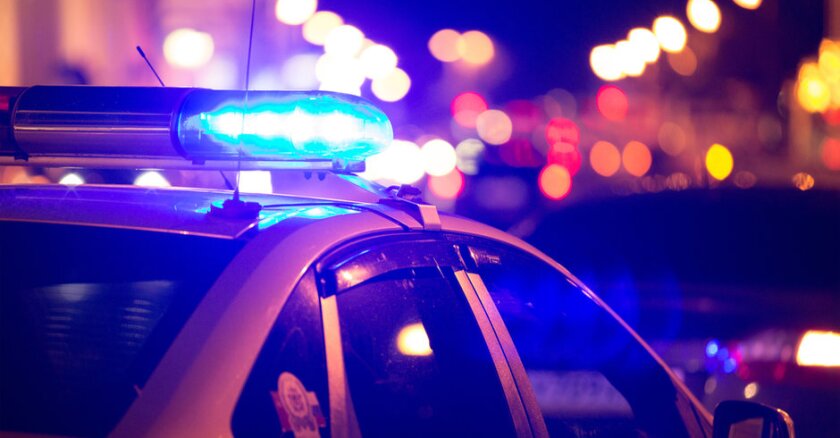New legislation tucked within the state bonding package passed last week will allow Connecticut to become the latest state where police can utilize new technology capable of identifying conspicuously noisy cars — and send tickets to their owners.
Pushed by state Rep. Bobby Gibson, D-Bloomfield, the proposal is a reaction to what he described as the increase in cars with deafening exhaust pipes and blaring stereos in parts of his district. Across Connecticut, reports of excessive noise from cars have become commonplace, and police say they've struggled to crack down on the perpetrators.
In particular, Gibson said the issue was brought to his attention by a constituent, Laurie Julian, who complained of the "aggressive roar" caused by cars with after-market mufflers driving around her North Bloomfield neighborhood.
"I get five hours of hearing these go up my street," Julian said. "In the morning, it can start as early as 5:30 a.m."
Under the new law, municipalities will be able to use automated listening devices to catch cars running at over 80 decibels, or roughly the same level of noise as a vacuum cleaner or welding equipment. Violators would receive a written warning for a first offense, followed by a $100 fine for a second or third offense and a $250 fine for repeat offenders, plus a processing fee of up to $15.
Similar efforts to use automated cameras to capture the license plates on noisy vehicles have already been rolled out in New York and New Mexico.
Critics, however, argue that the devices are incapable of distinguishing between cars that have been intentionally modified to run at ear-splitting volumes and those that may just need a muffler repair. In addition, reports have shown that automated enforcement can disproportionately target drivers in low-income and minority neighborhoods.
"If the rules around the usage are not clear and if they're not careful, it just becomes another one of these things where they just use it to generate revenue, especially on the backs of people who are poorer," said Jay Beeber of the National Motorists Association, a group that opposes automated enforcement.
For that reason, Connecticut lawmakers mandated a series of strict guidelines when they authorized cities and towns to begin automated red light and speed cameras last year. Among other things, that law requires towns to seek approval from the state Department of Transportation, with written justification for every location in which officials aim to deploy cameras.
No such approval requirement was included in the recently-legislation allowing towns to use automated cameras to enforce municipal noise ordinances.
The law does require that towns try to "randomize" the location of noise cameras they deploy, along with annual calibration checks and reports to the legislature about the number of tickets issued through each device as well as the revenue generated. Otherwise, oversight of the program is left largely up to police and municipal leaders.
"There should be oversight," said state Sen. Gary Winfield, D-New Haven. "If each municipality gets to make its own rules around this, there is a question of application, fairness, biases being built into these processes."
Winfield — who ultimately voted for the bonding bill along with nearly every other member of the legislature — attributed the lack of stronger oversight in the legislation to the fact that it was placed into the 254-page bill along with dozens of other unrelated measures during the final days of the legislative session. He said he had not been aware of conversations surrounding the issue until the final bill was released.
The language itself appears to have come from a separate piece of legislation, S.B. 454, that dealt specifically with the issue of automated noise cameras. That bill made it to the Senate floor, but was never called for a vote.
The bill drew support earlier in the session from Connecticut Council of Small Towns Director Betsy Gara, who said that local officials were fielding an increasing number of calls from residents complaining about the noise from modified cars.
"The noise levels disrupt sleep, study time, family time and other facets of daily life, undermining the quality of life in areas frequented by these cars," Gara said in testimony submitted to lawmakers. "The photo noise violation monitoring devices would provide municipalities with an opportunity to crack down on these vehicles and send a signal that excessive noise levels will not be tolerated."
Gibson, who was one of the sponsor's of the standalone bill, confirmed that he requested to have a version of the legislation included in the bonding bill in order to ensure its passage.
When asked about fears that the cameras to be used in a discriminatory manner, Gibson, who is Black, said the use of cameras to enforce noise ordinances concerned him less than speed and red-light cameras. Still, he added, "Laws can be revisited down the road, and I'm open to making it better."
Despite his concerns, Winfield agreed that the legislation was addressing a ubiquitous problem in Connecticut, particularly in and around the cities.
"I live on a pretty busy intersection and we hear a lot of those noises ourselves in my home," Winfield said. "It's a real issue, I wouldn't take that away from anyone."
© 2024 The Middletown Press, Conn. Distributed by Tribune Content Agency, LLC.














